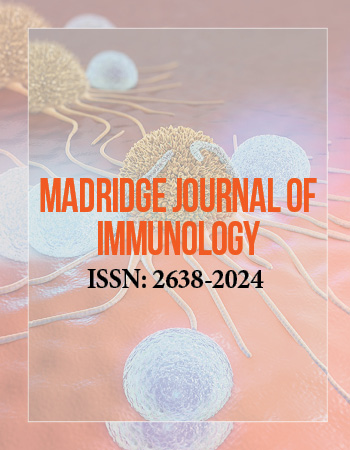International Conference on Immunology and Immunotechnology
November 1-3, 2017 Barcelona, Spain
Role of Cys-LT1 and NMDA Receptors in Protective Effect of Montelukast on an Animal Model of Post-Inflammatory Irritable Bowel Syndrome
1Department of Pharmacology, ShahidBeheshti University of Medical Sciences, Iran
2Department of Pharmacology, School of Medicine, Tehran University of Medical Sciences, Iran
3Department of Computer and IT, Islamic Azad University South Tehran Branch, Iran
Irritable bowel syndrome (IBS) is a functional gut disorder with multi-factorial pathophysiology. Although the roles of many inflammatory mediators, involved in the progression of this disorder, have been thoroughly researched and studied, the part played by cysteinyl-leukotrienes (Cys-LTs) remains widely neglected. The aims in the present study were to evaluate the chronic effects of a cysteinyl leukotriene-1 (CysLT1) receptor antagonist, montelukast (ML), on acetic acid induced diarrhea predominant IBS (D-IBS) in rats and identify the involvement of CysLT1 and N-methyl-D-aspartate (NMDA) receptors and CysLTs in mediating the effects. After 4% acetic acid-induction of colitis, separate groups of animals had been treated with vehicle, ML (10mg/kg) alone and in combination with NMDA for 7 days. Visceral hypersensitivity was assessed after subsidence of inflammation on the seventh experimental day. Also, we analyzed pathomorphism of distal colon, Cys-LTs levels, and mRNA expression of CysLT1 and NMDA receptors to investigate the mechanisms of protective effects of ML. Behavioral pain responses to noxious mechanical stimulation were abolished by chronic treatment of ML. The effect of ML was significantly inhibited by NMDA pretreatment. Surprisingly, Cys-LT levels and CysLT1R mRNA expression showed no remarkable differences among groups. However, there was a significant increase in expression of NMDA receptor NR1 subunit in D-IBS control group, while ML treatment was associated with significantly decreased NR1 mRNA level in IBS rats. It is possible that the mechanism of such beneficial effects of ML in IBS at least to some extent is through modulating NMDA receptors.
Biography:
Pariya Khodabakhsh was born in Tehran, Iran, in 1989. She received her doctorate in pharmacy from Islamic Azad University of Pharmaceutical Sciences, Tehran, Iran, in 2014. She is a second-year Ph.D student of pharmacology at ShahidBeheshti University of Medical Sciences, Tehran, Iran. She has authored numerous papers in national and international journals and conferences. Her current areas of research interest include Molecular and Structural Immunology, Immunopharmacology, Allergology and Neuroinflammation.


